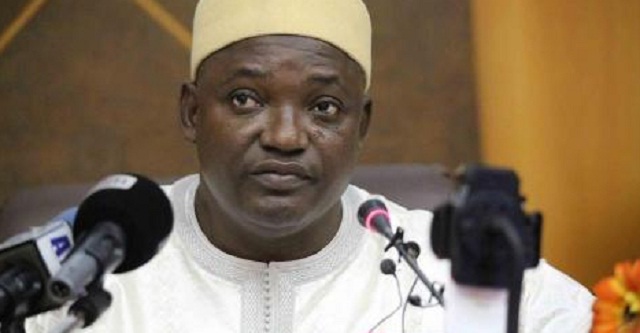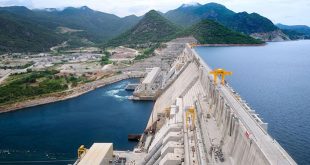
Banjul, Gambia | AFP | The tiny West African state of The Gambia on Monday swore in an 11-member commission tasked with shedding light on summary executions, disappearances, torture, rape and other crimes under ousted dictator Yahya Jammeh.
President Adama Barrow hailed the panel as a vital step towards national healing.
In a tweet, he said: “Let us stand together to say: ‘Never again shall a few people oppress us as a nation. Never again shall the beautiful Smiling Coast experience a tyranny of the minority against the majority’.”
Inspired by South Africa’s investigation into the apartheid era, the commission will hold witness hearings into Jammeh’s 22-year era of oppression.
The goal is to open the way to prosecuting those responsible and offering victims and their relatives the hope of closure.
“Gambians who were tortured or raped in prison, who were shot for peacefully demonstrating, who were forced into Jammeh’s phony HIV ‘treatment’ programmes, whose family members were killed or who were targeted in literal witch hunts will all be able to come forward,” said Reed Brody of Human Rights Watch (HRW).
“When the truth commission is finished hearing from all the victims we should have a complete picture.”
He said he hoped the two-year process would mark the first step to “holding Yahya Jammeh and his henchmen to account”.
Jammeh took over The Gambia, the smallest country on land in Africa, in a military coup in 1994.
He installed a structure of oppression and corruption that touched nearly every part of society, driven by the police, National Intelligence Agency (NIA) and a death squad called the Junglers.
Justice Minister Abubacarr Tambadou, a former UN court prosecutor on human rights in Rwanda, said The Gambia had experienced the darkest of nightmares.
“This a country where fear ruled for over two decades, where mothers dreaded the midnight knock on their doors which took their sons and daughters forever, where civil servants went to work every morning saying goodbye to their families as if it was the last time they would see them again,” he said.
Jammeh’s country, he added, was where “unarmed schoolchildren were gunned down in broad daylight, where torture was routine, where women under detention were sexually molested and where sexual assault was used as a weapon to rape and subjugate them.”
– Exile –
Jammeh’s reign began to crumble in December 2016, when he suffered a stunning electoral defeat at the hands of Barrow, the opposition leader.
He refused to step down, but was forced out the following month after other West African countries intervened militarily and diplomatically. He flew into self-imposed exile in Equatorial Guinea.
Created under an act of parliament, the Truth, Reconciliation and Reparations Commission (TRRC) aims at using openness and a court-like approach to investigate how abuse began and became systemic, as well as its impacts.
The commission will be empowered to advise prosecution of perpetrators and recommend financial compensation to victims.
Its members are drawn from all the country’s major regions, its five main ethnic groups and two religions, led by a retired UN diplomat, Lamin Sise.
Gender-based violence is expected to be a major theme of its mission, and four of the commissioners are women, one of whom is Sise’s deputy chair.
– Jammeh’s shadow –
The Center for Victims of Human Rights Violations, an NGO set up by victims and relatives of victims, says it has already documented hundreds of cases.
The NGO’s chairman, Sheriff Kijera, said relatives hoped desperately that the commission would help them learn what had happened to their loved ones.
But, he said, The Gambia has still not gone far enough to root out Jammeh’s henchmen and to support the many people they had abused.
“Alleged perpetrators and enablers of the atrocities committed under the Jammeh regime still find it comfortable holding requisite positions in government,”he said.
Whether Jammeh himself will be put in the dock is far from clear.
Barrow has said that any decision to bring Jammeh to justice would wait until the TRRC has completed its work.
But Equatorial Guinean President Teodoro Obiang Nguema — who has governed his country with an iron fist since 1979 — has ruled out any demand for extradition.
“Jammeh must be protected… (as) a guarantee for other African leaders that they will not be harassed after they leave power,” he said in January this year.
 The Independent Uganda: You get the Truth we Pay the Price
The Independent Uganda: You get the Truth we Pay the Price




